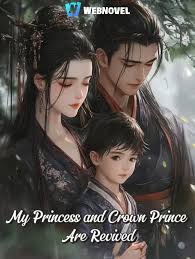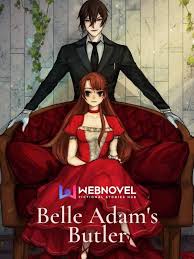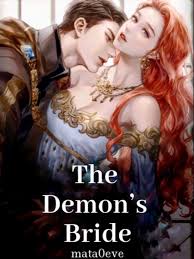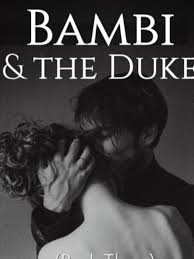The Story in 3 Sentences
A noblewoman named Feng Bailin, the legitimate daughter of the Chu Family, is betrayed by her half-sister and forced into a politically charged marriage with the blind Princely Heir six years before the main events unfold.
After enduring years of humiliation and isolation, she is unexpectedly revived or restored to her former status, setting off a chain of political maneuvering, hidden identities, and courtly intrigue.
With her intelligence and resilience, she navigates a treacherous imperial court filled with rivals like the scheming Tang Rou, ultimately reclaiming her dignity and reshaping her destiny alongside powerful figures such as Duke Du Gu Wu.
Why It Stands Out
1. A Marriage Forged in Shadows, Not Love
Unlike typical romance arcs that rely on instant chemistry or fated attraction, this novel roots its central relationship in coercion, survival, and slow-burning mutual respect. The forced union between Feng Bailin and the Princely Heir isn’t softened by early affection—it’s a battlefield of pride, duty, and unspoken trauma, making every shift in their dynamic feel earned rather than convenient.
2. Court Politics as a Weaponized Stage
The imperial court isn’t just a backdrop; it’s a living, breathing antagonist. Every banquet, decree, and whispered rumor carries lethal weight. The novel excels at turning etiquette into espionage and marriage alliances into acts of war, drawing readers into a world where a misplaced bow can be as dangerous as a dagger.
3. Revival as Reclamation, Not Just Revenge
While many historical romances lean heavily on vengeance tropes, this story frames revival as an act of self-restoration. Feng Bailin isn’t merely out to punish her enemies—she’s rebuilding her identity, agency, and voice in a system designed to silence women like her. Her journey resonates because it’s less about destroying others and more about refusing to be erased again.
Characters That Leave a Mark
There’s Du Gu Wu – the enigmatic Duke Jiu Qiansui whose cold exterior masks deep loyalty and strategic brilliance, often acting as both shield and shadow to those caught in courtly crossfires.
You’ll meet Tang Rou, who reappears as a reincarnated rival determined to steal Feng Bailin’s position with chilling entitlement, declaring, “Your position is mine, and I will be his.”
And Chu Baihan? They’re the one who steps into the imperial fray with quiet resolve, offering unexpected support and familial grounding amid the chaos of palace schemes.
The Flaws Fans Debate
Some readers find the pacing uneven, with early chapters steeped in emotional tension giving way to prolonged political negotiations that slow narrative momentum.
The blind Princely Heir’s characterization occasionally leans into archetypal stoicism, leaving his internal growth less explored compared to Feng Bailin’s rich emotional arc.
A recurring critique notes that secondary antagonists like the half-sister lack nuanced motivation, often serving more as plot devices than fully realized characters.
Must-Experience Arcs
Ch. 1–40: The Forced Union – Feng Bailin is thrust into a marriage with the blind Princely Heir amid court scandal, surviving near-death attempts and establishing her quiet defiance in a hostile palace.
Ch. 180–220: The Temple Conspiracy – Political rivals force Feng Bailin to a remote temple under false pretenses, where she uncovers a web of espionage tied to foreign powers and hidden heirs, testing her wit and resolve.
Ch. 370–408: The Final Restoration – With alliances forged and secrets exposed, Feng Bailin confronts Tang Rou’s reincarnated schemes in a climactic court trial that redefines succession, loyalty, and her own place in the empire’s future.
Killer Quotes
“Your position is mine, and I will be his.”
“In this palace, kindness is a currency only the dead can afford.”
“A crown weighs less than the silence of those who refuse to speak your name.”
Cultural Impact
The novel sparked widespread discussion on Webnovel forums for its subversion of the “rejected wife” trope, with fans praising its focus on agency over melodrama.
Readers frequently compare Feng Bailin’s strategic patience to characters like Wei Yingluo from Story of Yanxi Palace, calling her “the quiet storm of historical romance.”
Memes featuring “Don’t force me to become the Prince Consort’s wife” became popular reaction templates in East Asian webnovel communities, symbolizing resistance to unjust fate.
Final Verdict
Start Here If You Want:
A historical romance where intelligence triumphs over spectacle and emotional resilience outshines grand gestures.
A female lead who rebuilds her life not through magic or luck, but through unwavering clarity and tactical grace.
Court intrigue that feels authentic—where every alliance is fragile and every victory comes with a cost.
Study If You Love:
Narratives that explore gendered power structures within imperial systems and how women navigate them through coded language and social performance.
The evolution of forced proximity tropes into complex studies of trust, trauma, and mutual recognition.
Rebirth or revival motifs used not for fantasy escapism, but as metaphors for psychological and social reintegration.
Avoid If You Prefer:
Fast-paced action or supernatural elements—this is a slow-burn drama rooted in human psychology and political realism.
Romances built on overt declarations of love; here, affection is shown through protection, silence, and shared burdens.
Stories with clear-cut villains; the novel thrives in moral gray zones where even allies harbor hidden agendas.





